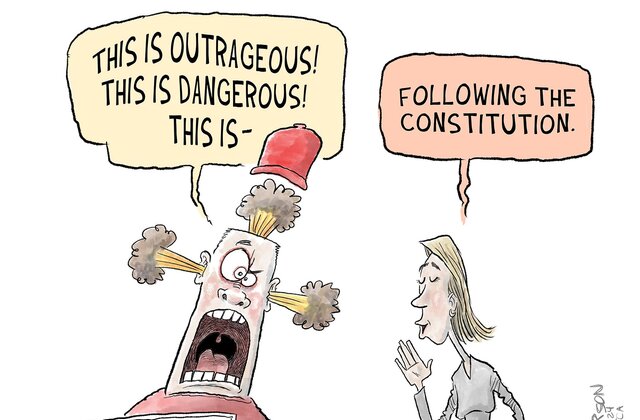[ad_1]
UNITED NATIONS (AP) — The U.N. trade body warned Thursday that global trade is being disrupted by attacks in the Red Sea, the war in Ukraine and low water levels in the Panama Canal.
Jan Hofmann, a trade expert at the United Nations Conference on Trade and Development, known as UNCTAD, warned that shipping costs have already increased and are affecting energy and food costs, increasing the risk of inflation. .
Since Yemen’s Houthi rebels began attacks on ships in the Red Sea in November, major players in the shipping industry have temporarily halted use of Egypt’s Suez Canal, which connects the Mediterranean to the Red Sea, he said. It is an important waterway and an important route for energy. and cargo between Asia and Europe.
Hoffman said the Suez Canal could handle 12% to 15% of global trade in 2023, but UNCTAD estimates trade volume through the waterway has fallen 42% in the past two months.
From November, Iranian-backed Houthis There have been at least 34 attacks on shipping through the waterways leading to the Suez Canal. Houthis, a Shia rebel group It has been at war with the Saudi-led coalition that supports Yemen’s exiled government since 2015, supports the Palestinians and has vowed to continue attacks until the Israel-Hamas war ends.
political cartoon

The United States and Britain have responded with attacks against Houthi targets, but The rebels have maintained their attacks.
Hoffmann, who heads the trade logistics branch at Geneva-based UNCTAD, said in a video press conference with UN correspondents that the Houthi attacks are coming at a time when other key trade routes are under strain.
Nearly two years of war and other geopolitical tensions since Russia’s February 24, 2022 invasion of Ukraine have plunged oil and grain trade route i He said, this also includes the Black Sea.
Compounding the difficulties for shipping companies is a severe drought that has dropped water levels in the Panama Canal to its lowest point in decades, Hoffman said, causing a severe reduction in the number and size of ships transiting through it.
total transit through Panama Canal Those in December were 36% lower than a year earlier and 62% lower than two years earlier, Hoffman said.
About 80% of world trade is carried by ships, he said, and the percentage is even higher for developing countries.
But red sea crisis Hoffman said that is causing significant disruption to shipments of grain and other key commodities from Europe, Russia and Ukraine, increasing costs for consumers and posing a serious risk to global food security.
This is especially true in regions such as East Africa, South Asia, Southeast Asia and East Asia, which are heavily dependent on wheat imports from Europe and the Black Sea region, he said.
Hoffman said early data through 2024 showed that more than 300 container ships, more than 20% of global container capacity, were diverting or planning to use the Suez Canal. Many are choosing to go around the Cape of Good Hope in Africa, which is a longer and more expensive journey.
Hoffman said ships transporting liquefied natural gas have stopped transiting the Suez Canal altogether due to fears of an attack.
As far as costs are concerned, he said, average container shipping spot rates from Shanghai have increased 122% since the beginning of December, while rates from Shanghai to Europe have increased 256% and rates to the US West Coast have increased 162%.
“Here you can see the global impact of the crisis, as ships look for alternative routes avoiding the Suez and Panama Canal,” Hoffman said.
Copyright 2024 The associated Press, All rights reserved. This material may not be published, broadcast, rewritten, or redistributed.
[ad_2]
Source link
